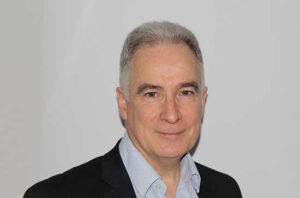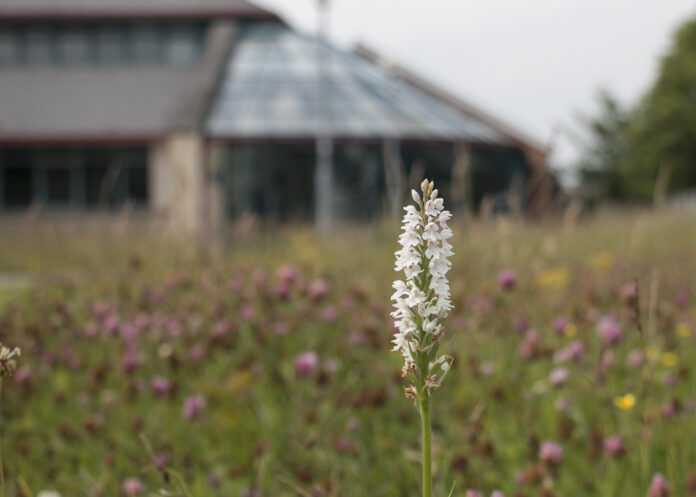Dr. Joe Larragy, Founder Chairperson of Maynooth Green Campus, details the hard work of staff and students that led to their many successful initiatives
As the realisation grows that we are in an era of damaging climate change and profound biodiversity loss, it is all too easy for the individual to give up hope. But 20km west of Dublin, on a higher education campus, a fascinating initiative defies the odds. Maynooth Green Campus (MGC) promotes practical action on the environment, changes in the curriculum, research on the big environmental challenges, and public engagement with wider civil society and government.
A green campus is not solely about reducing the carbon footprint on one site. A university campus is an exciting and crucial location for learning. Everything that happens on campus grounds during the time students are doing degrees can become a learning focus for them and can contribute to the kind of attributes that are needed in graduates who go on to play their part in economic and societal life in the future. All green campus initiatives can have an impact through shaping the experience and outlook of graduates.
FROM SMALL BEGINNINGS
In 2012, MGC started with a committee examining how to improve social and environmental spaces for the college community. Before too long, MGC saw the need to look at the wider context and examine the environmental impact of the growing population and increased activity on the campus. From small beginnings this voluntary committee has been changing the discourse, informed by evidence, and empowering staff, students, and surrounding local communities to shape their future together through increased ecological awareness and citizenship.
AN TAISCE’S GREEN CAMPUS PROGRAMME
The committee registered with An Taisce’s new Green Campus programme, accredited by Copenhagen-based Foundation for Environmental Education (FEE). This provided a basic template for action. MGC set up working groups, under the headings of waste, water, biodiversity, energy, travel and transport, and climate justice. Great strides followed. The working group approach made it easier to work with campus management and staff on specific areas, while the committee became a clearing house and forum. MGC soon linked up with campus planning, estates, and general services departments to coordinate efforts and audit progress. They organised team building and awareness raising, litter picks, competitions and energy saving such as the ‘Maynooth Unplugged’ campaign to switch off computers and chargers at weekends. Over roughly five years the work began to bear fruit, and in 2018 Maynooth was awarded the Green Campus Flag in the five original thematic areas, setting a precedent by winning recognition for the new theme of Climate Justice.
BIODIVERSITY, WILDFLOWER MEADOWS AND POLLINATORS
Biodiversity has been a huge part of the innovative work at Maynooth. The biodiversity working group, led by Dr Jim Carolan, Dr Gail Maher and Stephen Seaman, grounds supervisor, has drawn praise from far and wide. Our extensive wildflower meadows reached 1 million square feet in 2021. Biodiversity work includes walks, talks, data recording of campus flora and fauna and participation in the All-Ireland Pollinator Plan. This work is linked to learning and research on, for example, pollinators and on the effects of glyphosate. Bird boxes and bat boxes have been installed across campus. In addition to the Green Campus Flag (2018), Maynooth won a Green Flag for Parks (2019) and in 2020 was All-Ireland Pollinator overall Award winner.
FROEBEL: FROM SCHOOL TO THE FIELDS
Dr Máire Nic an Bhaird and Laoise Ni Chléirigh, from the Froebel (primary education) Department, collaborated with colleagues and Kildare County Council on two biodiversity enhancement projects called Dearcán (acorn) and Tairseach (threshold) funded by Project Live and the Healthy Ireland Government Scheme. These real-life biodiversity and well-being projects have enhanced both pedagogy and peer-learning among students, and local communities.
The Dearcán project, adapted in the face of isolation during Covid-19 lockdowns, included workshops for schools, biodiversity and well-being videos for Kildare citizens. It contributed to lesson plans and is complemented by a rooftop biodiversity garden on the MU School of Education. Tairseach is a project involving the creation of a Tree Trail across parts of the campus with digital mapping resources. Máire notes, “this biodiversity work has given us a greater sense of personal and professional identity, efficacy, spiritual growth, and moral development.”
ENERGY
Maynooth campus exceeded the government target of reducing electricity consumption by over 33% per FTE student between 2009 and 2020. LED lighting has been installed across buildings and grounds. Solar panels have been put on some existing and new buildings. Insulation has been improved through retrofitting and meeting high standards in new buildings. Heating systems have been replaced and modularised. Maynooth University reached the ISO 50001 energy standard in 2018, which recognises both best practice and user engagement among staff and students.
WATER
Water conservation has greatly improved following the replacement of very old water mains (the campus dates from 1795). There are now more drinking fountains suitable for filling bottles, rainwater collection butts for ground-staff to use, water harvesting in new buildings for reuse, cistern blocks in toilets, and tap replacement.
WASTE
Waste management was stepped-up. Innovations include free reusable water bottles for new students, substitution of compostable cups for disposables, and incentives to use keep cups. Bins are organised across campus to separate paper, cardboard, general waste, electrical waste, batteries etc. Food waste is taken off campus and mechanically composted and can be reused on the grounds. Landfill has been reduced from over 65% 10 years ago, to near-zero. Cardboard compacting takes place on campus and paper usage has been reduced across all activities. Old computers are now securely wiped and collected by NRB for reconditioning and reuse.
TRAVEL AND TRANSPORT
Over the five-years up to 2019, private car use fell from 60% to 32%. Car-pooling, parking management, cycling promotions, charge-points for EVs, repairs and second-hand bike sales were set up. Public travel is encouraged and MGC promotes walking-for-health in conjunction with the RSA “step challenge” and “Marchathon” initiatives. On campus conventional petrol and diesel utility vehicles have been replaced by a fleet of narrow-gauge electric vehicles used in catering, postal, grounds, and cleaning services.
MAYNOOTH DECARBONISATION ZONE
Lecturer Michael Kenny led the formation of Maynooth (town) Sustainable Energy Committee (MSEC) with the support of the SEAI. In 2020, MSEC successfully proposed Maynooth town as the lead decarbonisation zone for the county, opening the way for greater efforts in relation to household retrofitting, community energy, cycling and pedestrian networks, planting of indigenous trees, progressive agriculture and hedgerows, youth engagement, and working with Maynooth University.
CLIMATE JUSTICE
From the start, MGC also saw the need to highlight climate justice and global challenges related to the environment. Indeed, MGC brought together Maynooth University, the older seminary, St. Patrick’s College Maynooth (SPCM), and Trócaire, the international relief and development agency, whose headquarters are located on the campus. In June 2015, Maynooth University became the first in Ireland to adopt a policy to not invest any funds in fossil-related activities.
LINKING LEARNING TO THE GLOBAL GOALS (SDGs)
Maynooth Green Campus has a charter that includes support for Sustainable Development Goals and promotes the mainstreaming of sustainability across teaching and research. Students now want a greater environmental and climate focus in the curriculum, as shown in a recent survey by Maynooth SU. In 2021, under the guidance of Lecturer Michael Kenny, faculties, academic departments, research Institutes and centres were surveyed on teaching and research across the university map to the Sustainable Development Goals. The findings can offer a baseline for greater integration of SDGs with teaching.
SUSTAINABLE FOOD AND AGRICULTURE
A recently formed MGC ‘Sustainable Food and Agriculture Working Group’ has completed an ‘Edible Garden’ Project. This includes an array of fruit, vegetables, herbs and heritage apple trees that has transformed a once grey vacant ‘corridor’ between buildings into a vibrant and productive landscape, enhancing and strengthening the University’s public realm. Led by Dr Patricia Kettle and grounded in a pedagogy of community-engaged learning and the SDGs, the garden provides links to learning and research, in an interdisciplinary space where staff, students and the local community can cultivate food, interact with nature, and share knowledge. As Patricia notes: ‘Well-functioning public spaces rely on involving people in the creation of that space’.
Linking local learnings about food to the global challenge of food sovereignty, geography Lecturer Dr. Alistair Fraser, commented, “Food sovereignty is about trying to transform the food system by empowering food producers who adopt agroecological approaches. The role of a university campus is to help foster and promote that idea, not least by enabling networking to occur via events.”
HEALTH, WELLBEING AND THE SDGs
While aspects of health and wellbeing are embedded in all Maynooth Green campus work, this topic has now become the focus of a specific health and wellbeing working group. Linked to SDG 3, Good Health & Wellbeing is led by Dr Ronan Foley, Associate Professor in Geography. The group will focus on the wider dimensions of public health, health promotion, and developing campus-wide assets to promote health and well-being. Ronan believes that Maynooth Campus, with its many natural “green and blue” spaces can readily host a wide range of student and staff activities, research projects and initiatives.
ECO-CITIZENSHIP AND SUSTAINABILITY
While Maynooth University is known for the contributions of Prof John Sweeney and Professor Peter Thorne to the Intergovernmental Panel on Climate Change (IPCC), which provides the basis for climate talks now set to happen in Glasgow at COP26, there is much else afoot. Eco-citizenship is developing and can contribute to empowerment. Monumental efforts at every level of society are now more urgent than ever to mitigate climate change and adapt to the effects already being felt. These efforts will be prolonged, over decades, at least, and will require a transformation of the very way we think about the role and function of universities and the wider questions of social organisation, economy and ecology that campus communities can help to address. Maynooth university campus is fast becoming a school for eco-citizenship. ✽

Dr. Joe Larragy is a retired lecture/assistant professor in Social Policy, and Founder Chairperson of Maynooth Green Campus |




